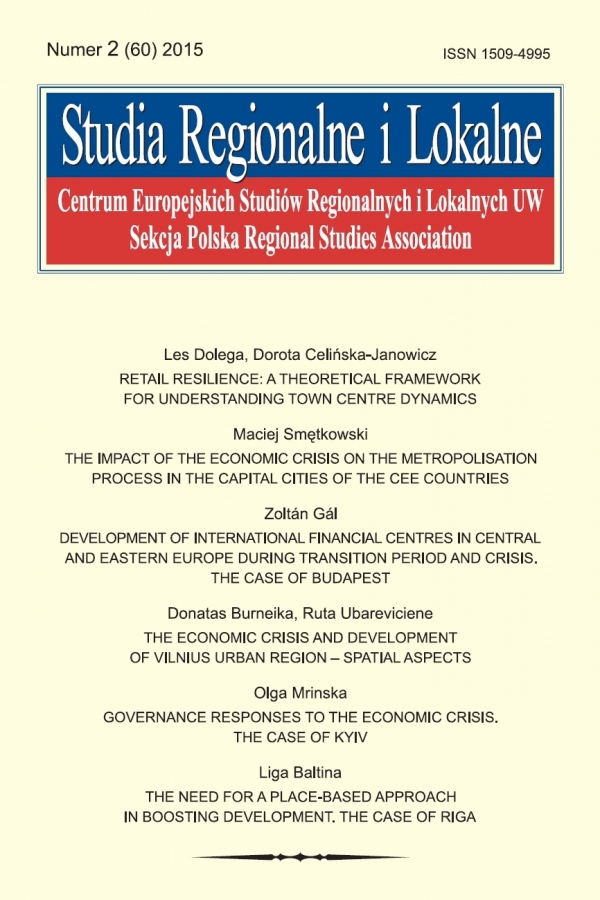Published in
2(60)/2015

- Les Dolega, Dorota Celińska-JanowiczRetail resilience: A theoretical framework for understanding town centre dynamics[more]
- Maciej SmętkowskiThe impact of the economic crisis on the metropolisation process in the capital cities of the CEE countries[more]
- Zoltán GálDevelopment of international financial centres in Central and Eastern Europe during transition period and crisis. The case of Budapest[more]
- Donatas Burneika, Ruta UbarevicieneThe economic crisis and development of Vilnius urban region – spatial aspects[more]
- Olga MrinskaGovernance responses to the economic crisis. The case of Kyiv[more]
- Liga BaltinaThe need for a place-based approach in boosting development. The case of Riga[more]
- REPORT – RSA Research Network ‘The impact ofglobal economic crisis on capital cities’[more]


